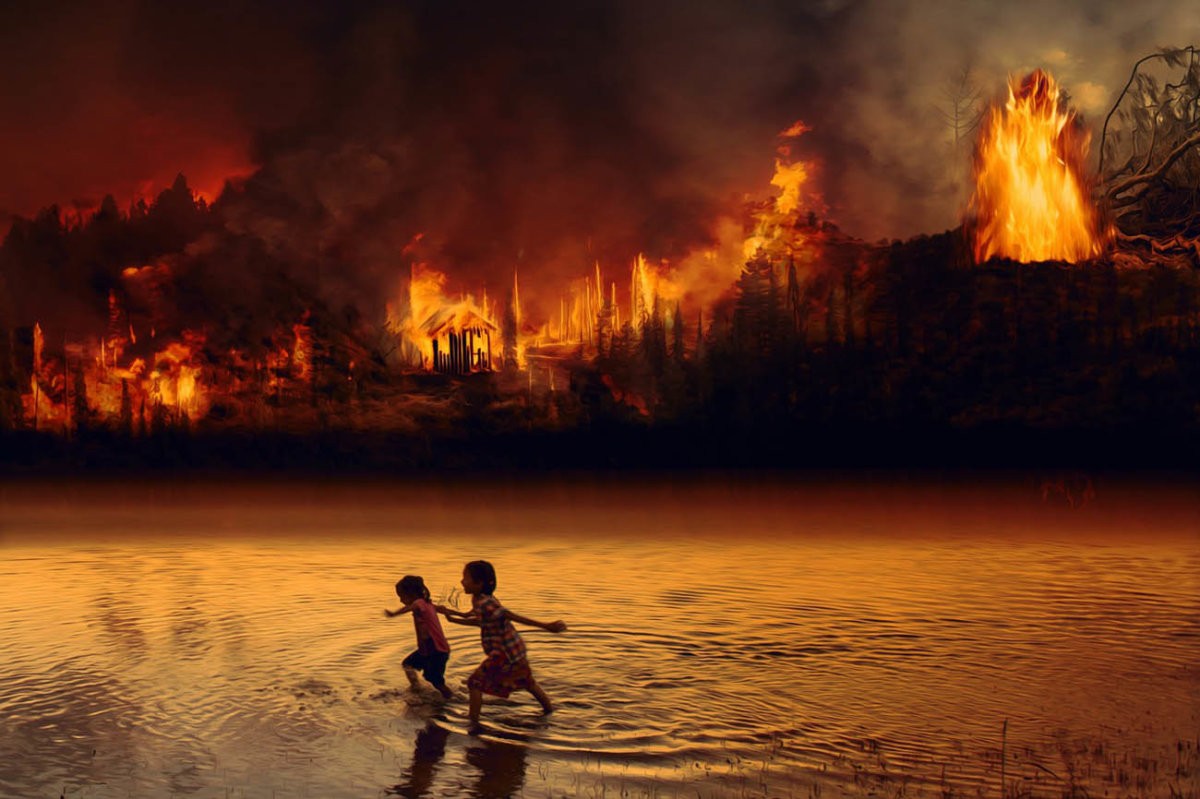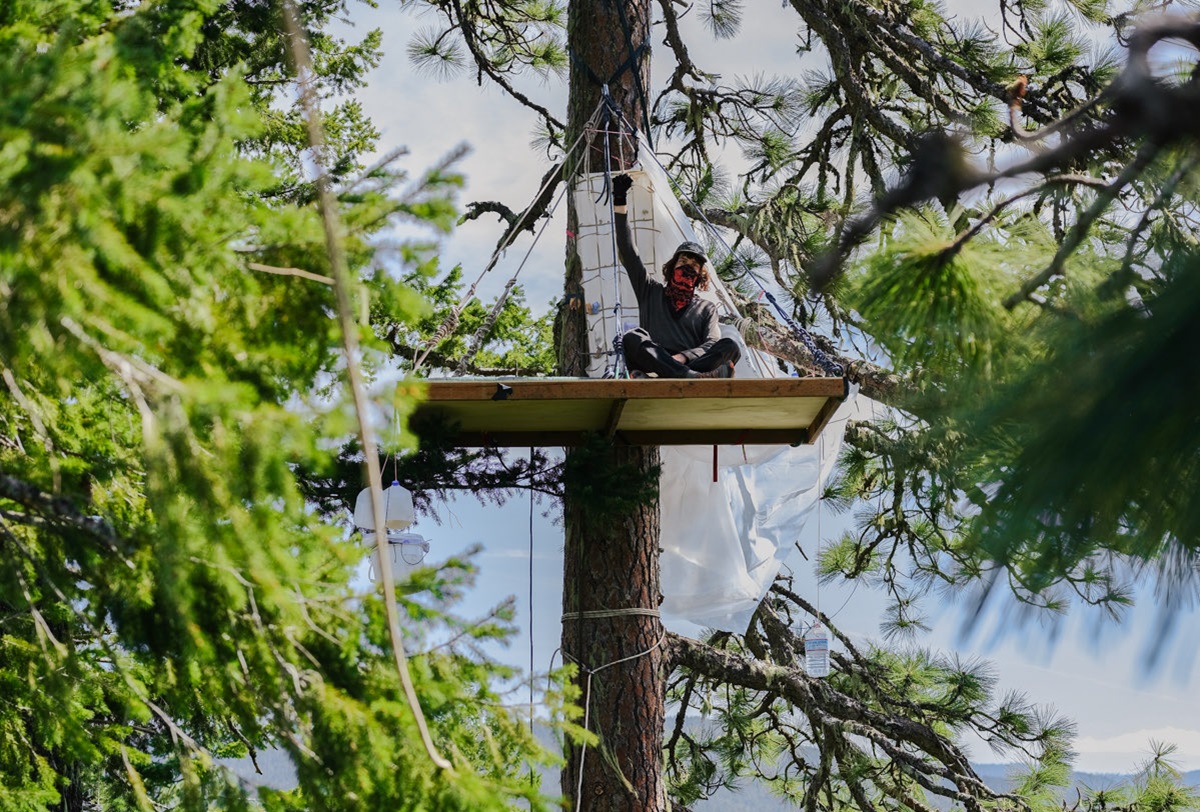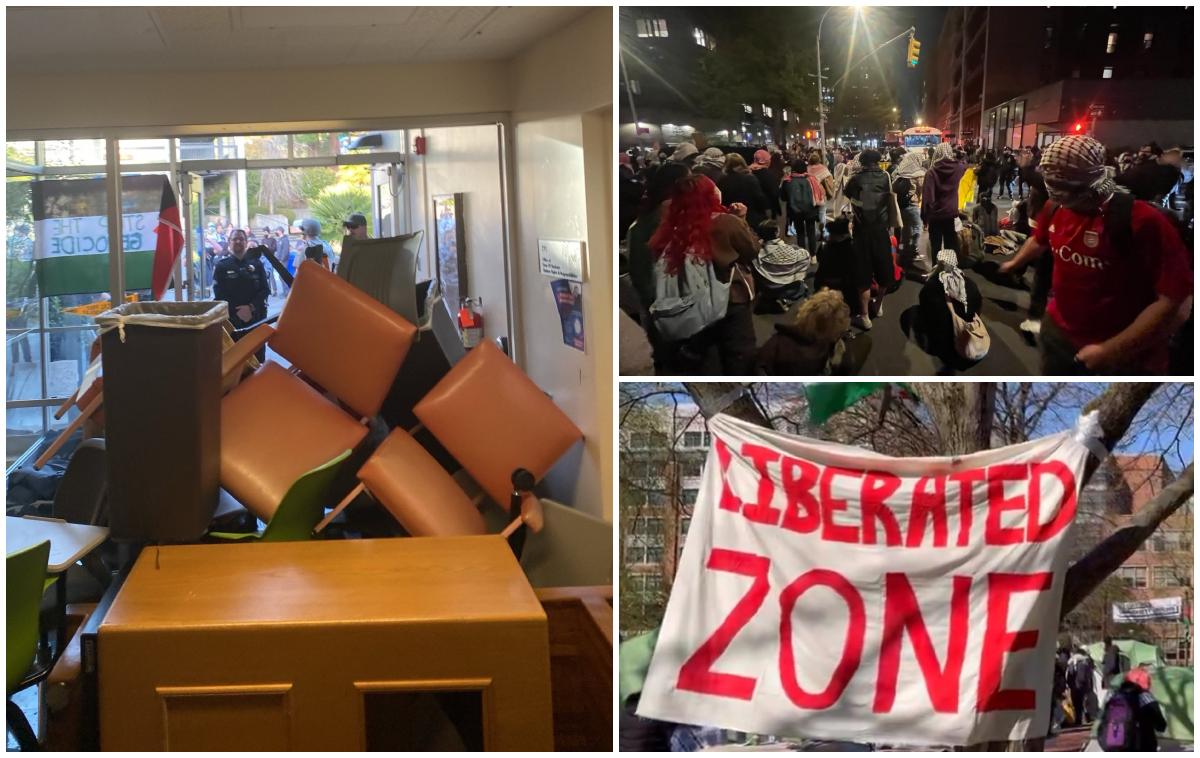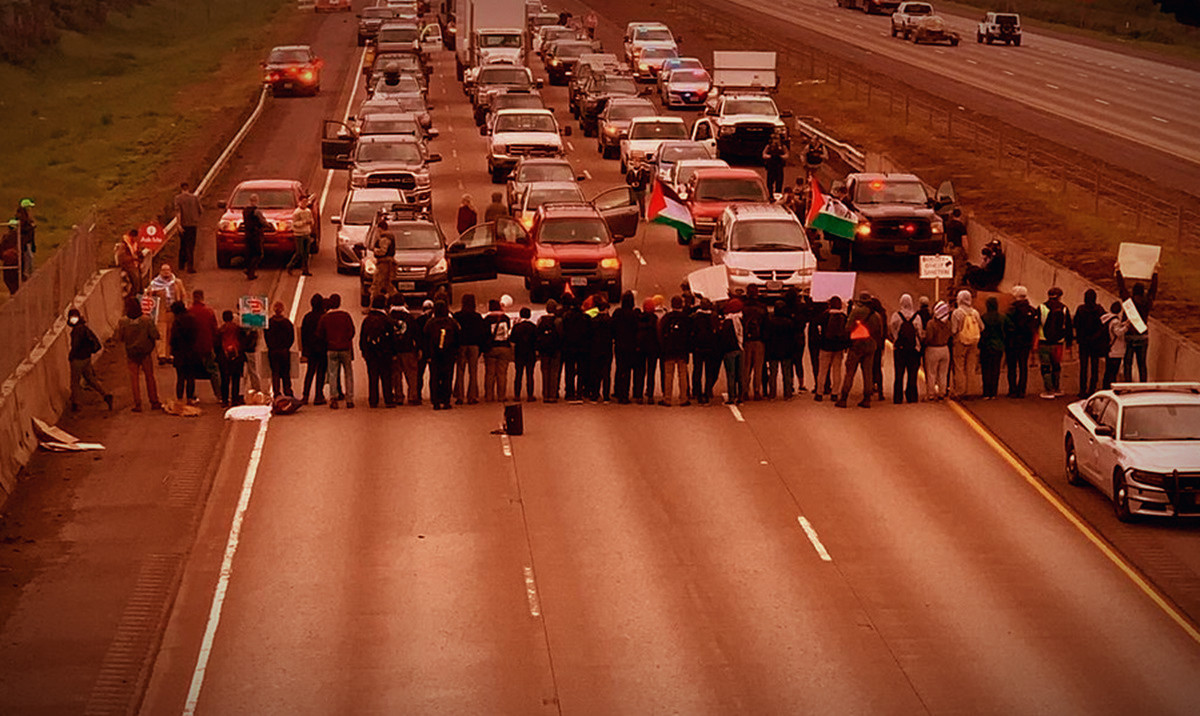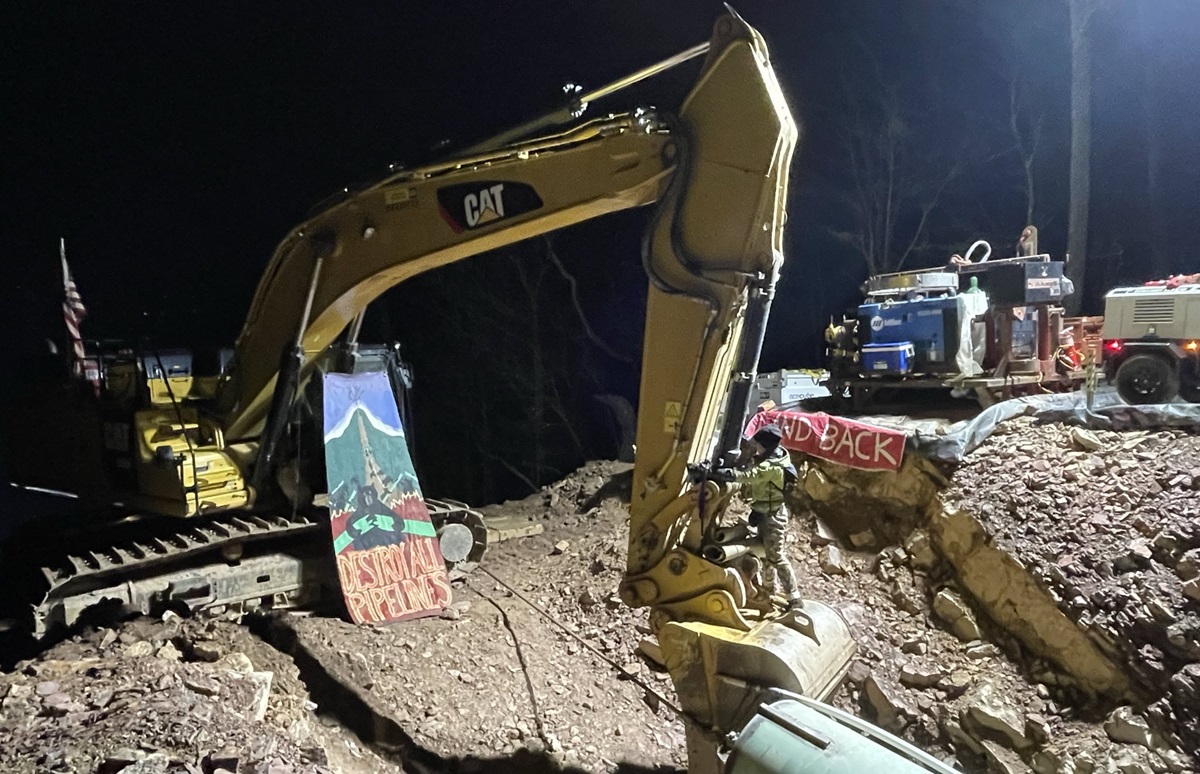An anarchist analysis of the current attack on the Amazon, indigenous people who call it home, and the vast array of non-human animals and plants.
The devastation that has been wrought by the Amazon fire cannot be overstated.
It has been estimated that, over the past fifty years, at least seventeen percent of “the Earth’s lungs” have already been burned; this most recent blaze threatens to up the ante to anywhere from twenty-five to forty percent.
In other words, nearly half of the entire Amazon region may be burnt to a crisp before this is over.
Autonomy Anywhere is a Threat to Statehood Everywhere
It is no secret that one motivating factor in the Brazilian State’s decision to burn the Earth’s lungs is an unyielding desire to appropriate indigenous lands— for capitalist reasons, for racist reasons, and because autonomy anywhere is a threat to statehood everywhere. Even before the fire was set— as early April 2019— the Bolsonaro administration sought to curb indigenous people’s rights in a variety of ways, including by transferring land demarcation and environmental licensing to the Ministry of Agriculture. Thousands of indigenous people from hundreds of tribes across the country demonstrated in front of government buildings for three days in response to these outrages.
Indigenous tribes of the region continue to fight valiantly against the more recent threat of displacement and against their way of life posed by the State-sanctioned Amazon blaze. The Karipuna live on the Jacy-Parane riverbank, in the northwestern Brazilian state of Rondonia. In 1978, dozens of Karipuna died of disease upon having contact with non-indigenous people for the first time. Capitalism has threatened their land ever since: first, in the form of lumber and rubber companies taking an interest in the riverbank; and, later— including the present moment— via agricultural schemes designed to turn this vibrant jungle into yet another massive monoculture field that will undoubtedly wreak havoc on the ecosystem, in addition to displacing the Karipuna.
“The farmers are getting too close; they are invading a lot of our land. We are surrounded.”
In spite of the fact that the Karipuna have survived decades of invasion and attack by capitalist and imperialist enterprises alike, Katica Karipuna, one of the tribe’s oldest members, recently said, “Now, I feel afraid. The farmers are getting too close; they are invading a lot of our land. We are surrounded.”
It is telling that her primary concern was not the fire itself, but the farmers in whose interest it had been sparked; effectively, these are one and the same. While fire naturally occurs in many ecosystems, and the Amazon has naturally caught fire in the past, the Brazilian State has done little, if anything, to cover its tracks or give itself plausible deniability in this matter. Throughout his campaign, Bolsonaro promised to strengthen Brazil’s economy by attracting development to the Amazon while repeatedly denigrating indigenous people (as well as myriad other marginalized people, such as LGBTQP+ folk).
In a communique titled, “In Case of Fire, Burn the Landlords and Imperialists,” the Coordenação Anarquista Brasileira (Brazilian Anarchist Co-ordination, or CAB), asserted that a call to action on August 10th of this year encouraged people to participate in a “Day of Fire” and intentionally set the Amazon ablaze:
This is a campaign initially promoted by the Pará estates, which has spread rapidly throughout the Amazonian biome. In an interview with Folha do Progresso, a fazendeiro (landowner) who was shamelessly mobilizing to set fire to the jungle said the goal was to “show willingness to work for President Bolsonaro…we need to show the president that we want to work and the only way is to devastate [the jungle]. And to clean and generate grasslands, it is with fire.”
“The jungle is our mother. The territory is our home. They are our life. We defend them!”
The Munduruku live approximately 1,500 miles from Brasilia. Like the Karipuna, the Munduruku have a long, proud history of resistance to imperialist forces, including the Portuguese military. Sawre Muybu is a Munduruku village on the Tapajos riverbank. The Munduruku believe that life on Earth originated from a narrow opening in the river. Thus, this land is not only home to the Munduruku; it is sacred— a fundamental aspect of their culture and way of life that can be neither replicated nor replaced.
A proposed dam upstream from this village would result in the flooding and destruction of the homes of approximately 100 people. While the tribe has resisted the dam project for years, and the project was shelved in 2016, the tribe lives with the knowledge that, at any moment, the project can be reignited. Meanwhile, the Bolsonaro administration seeks to rush licensing for smaller dams throughout the region.
Aldira Akai, a Munduruku, recently said that the Brazilian State “wants us to live like white people, to live off of our own income” (as opposed to sharing resources, as they do now).
She insisted: “We won’t let them destroy our land, the land where we have always lived.”
Similarly, the Ka’apor people of Maranhão boldly decree: “The jungle is our mother. The territory is our home. They are our life. We defend them!”
A Nonhuman Massacre
Their devotion not only to their tribes but also to the planet as a whole is inspiring— and desperately needed. The death toll among the non-human inhabitants of the Amazon is skyrocketing. The Amazon is— was— home to one-tenth of all sentient specie on Earth. In the short term, slower nonhumans (such as sloths and anteaters), small mammals, reptiles, amphibians, and invertebrates are most at risk. The last three groups are particularly vulnerable because they live in microhabitats that can be quickly destroyed by contact with fire, however minimal. Endemic specie, such as the Milton’s titi and Mura’s saddleback tamarin specie of monkey, are also at high risk.
In the long term, the entire ecosystem of the Amazon will be forever altered. As the canopy is destroyed, sunlight will penetrate it and reach down to the ground. Nonhumans who rely on camouflage, including myriad specie of amphibian, will be forced to try to blend in against a notably different backdrop. Nonhumans who typically live high in the canopy (such as toucans, whose long beaks allow them to access fruit other animals cannot; and spider monkeys, who like to stay up high to avoid competition) will be forced to forage and compete for food elsewhere. Nonhumans who rely on the wet, dark conditions provided by the canopy— such as insectivorous birds, who need the ground to be soft and damp in order to be able to stealthily hunt for food— will find themselves shit out of luck and likely starve to death.
This nonhuman massacre is at once an ecological disaster, certain to disrupt both human and environmental health in the coming years; and a spiritually painful tragedy, the scale of which overwhelms the senses.
Solidarity across So-Called “Borders”
Revolutionary anarchists in the U.S. stand in solidarity with the indigenous tribes of the Amazon, as well as the scores of other indigenous tribes around the world currently facing imperialist zealotry. We mourn the loss of countless lives in the region, both in the present and in the future; and forcefully condemn the actions of the Brazilian State, while recognizing that all other States similarly oppress, violate, attack, and threaten those who unwittingly found themselves within their imaginary borders. The State has no regard for life whatsoever; its only motive is self-preservation.
Armed with this knowledge, grounded by history, and compelled by our hearts, victory against statehood is not merely possible; it is inevitable.


